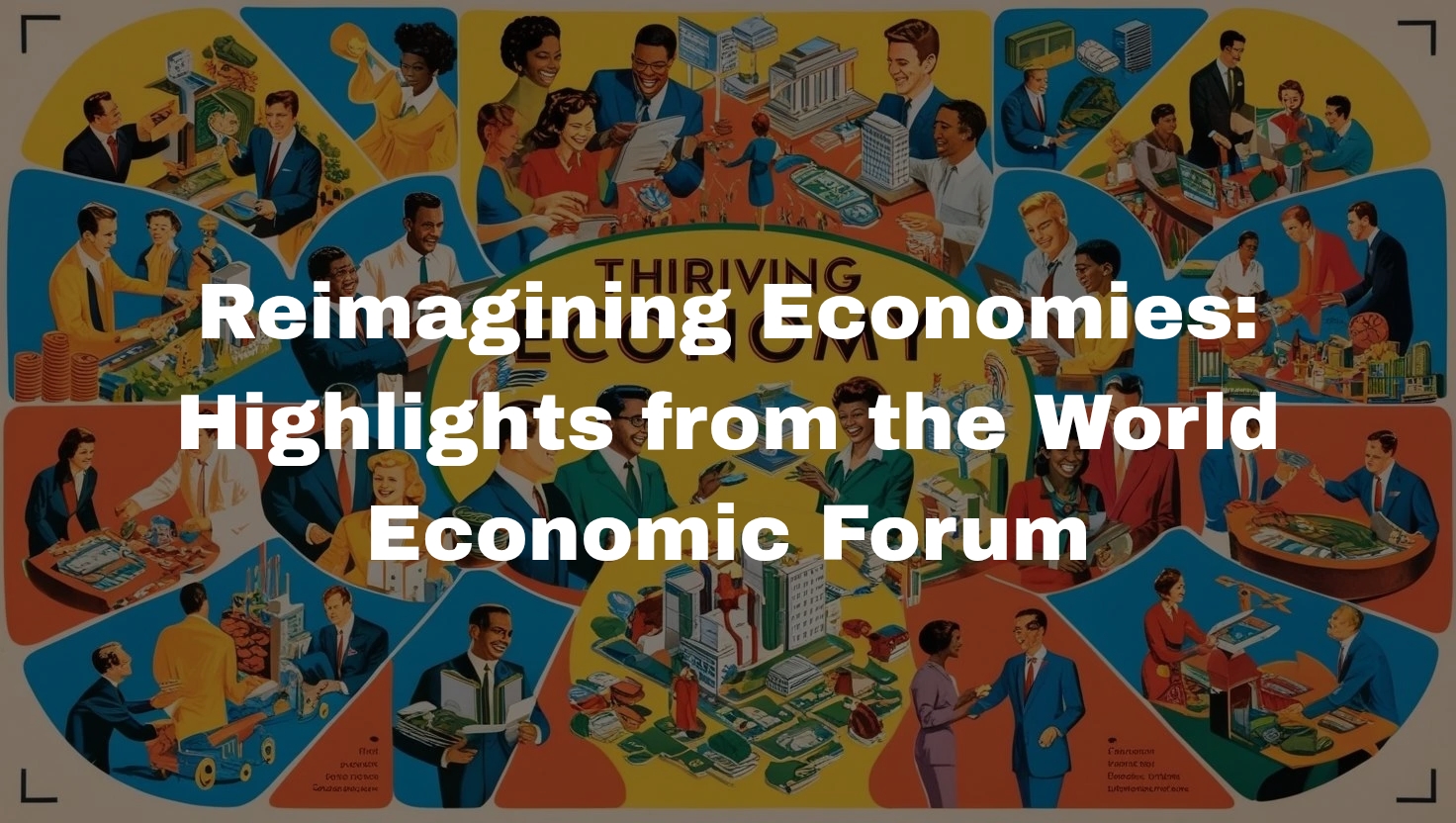
Reimagining Economies: Highlights from the World Economic Forum
The World Economic Forum (WEF) Annual Meeting in Davos, Switzerland, held from January 20 to 24, 2025, centred around the theme "Reimagining Growth." This theme underscored the necessity to rethink traditional economic paradigms in light of global challenges such as climate change, technological advancements, and social inequalities. Leaders from various sectors convened to deliberate on fostering sustainable, inclusive, and resilient economic models.
Understanding 'Reimagining Growth'
The concept of "Reimagining Growth" calls for a shift from solely quantitative economic metrics, like Gross Domestic Product (GDP), to a more holistic approach that incorporates qualitative factors. This perspective emphasizes environmental sustainability, social well-being, and equitable wealth distribution as integral components of economic progress. The WEF's Future of Growth Framework advocates for redefining economic success beyond traditional GDP metrics, promoting a more comprehensive understanding of prosperity.
Key Discussions and Initiatives
-
Quality Over Quantity in Economic Growth
-
Participants highlighted the importance of the quality of economic growth, assessing how it impacts the environment, societal health, and overall quality of life.
-
-
Global Economic Projections
-
The International Monetary Fund projected a steady global growth rate of 3.3% for 2025, slightly below the historical average, underscoring the need for innovative strategies.
-
-
Collaboration in the Intelligent Age
-
The meeting addressed the intersection of sustainability, innovation, and partnerships, emphasizing the role of technology in driving sustainable development.
-
-
Reskilling Revolution
-
The WEF's initiative aims to equip one billion people with better education, skills, and economic opportunities by 2030, addressing the evolving demands of the labour market.
-
-
Economic Statecraft and Global GDP
-
A report by the WEF and Oliver Wyman cautioned that increasing economic barriers, such as sanctions and export controls, could reduce global GDP by up to 5% annually.
-
End Note
The 2025 World Economic Forum's focus on "Reimagining Growth" reflects a global recognition of the need to evolve economic paradigms. By emphasizing quality over quantity, economic policies should prioritize sustainability, social equity, and technological innovation. The discussions at Davos provided a roadmap for policymakers and business leaders to create a future-proof economic system that fosters long-term prosperity.
In case of any query regarding Reimagining Economies: Highlights from the World Economic Forum, feel free to connect with our legal experts, Tulja Legal, at +91 96380-69905
About the Author
Anju S Nair
Legal Researcher | LLB, MA English| Corporate Lawyer | Business Enthusiast | Founder & CEO at iLawbook.
FAQs
-
What is the World Economic Forum (WEF)?
-
The WEF is an international organization that engages leaders from various sectors to shape global, regional, and industry agendas.
-
-
What does 'Reimagining Growth' entail?
-
It involves redefining economic success by considering factors beyond GDP, such as environmental sustainability and social well-being.
-
-
Why is there a focus on the quality of economic growth?
-
Quality growth ensures sustainable and inclusive economic development, benefiting society and the environment in the long term.
-
-
What are the global economic projections for 2025?
-
The IMF projects a global growth rate of 3.3% for 2025, slightly below historical averages.
-
-
What is the 'Collaboration for the Intelligent Age' theme about?
-
It emphasizes integrating sustainability, innovation, and partnerships to address global challenges effectively.
-
-
What is the Reskilling Revolution?
-
A WEF initiative aimed at providing better education and job opportunities to one billion people by 2030.
-
-
How could increasing economic barriers affect global GDP?
-
Economic barriers like sanctions could reduce global GDP by up to 5% annually.
-
-
What role does technology play in 'Reimagining Growth'?
-
Technology drives sustainable development, enhances productivity, and creates new economic opportunities.
-
-
Why is there a shift from traditional GDP metrics?
-
Traditional GDP metrics do not account for environmental degradation or social inequalities, making a broader assessment necessary.
-
-
What are the implications of the 'Reimagining Growth' discussions for policymakers?
-
Policymakers are encouraged to adopt holistic economic frameworks prioritizing sustainability, inclusivity, and resilience.
-
References
-
World Economic Forum. (2025). "Reimagining Economic Growth." Retrieved from https://www.weforum.org
-
International Monetary Fund. (2025). "Global Economic Outlook 2025." Retrieved from https://www.imf.org
-
United Nations Global Compact. (2025). "Five Key Takeaways from the WEF 2025." Retrieved from https://unglobalcompact.org
-
Oliver Wyman & WEF. (2025). "Economic Statecraft and Global GDP." Retrieved from https://www.oliverwyman.com
-
WEF Reskilling Revolution Initiative. (2025). Retrieved from https://initiatives.weforum.org/reskilling-revolution/home
